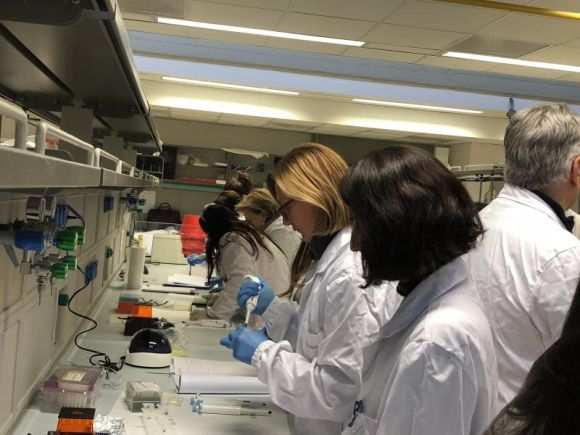In this new blog series, the Program Office will highlight strategies different program sites are using to scale for depth, spread, shift, and sustainability. This month, we focus on sites using promising scaling strategies for depth.
As described in Cynthia Coburn’s seminal research on scale (Coburn, 2003), scaling for depth requires that programs make deep and consequential changes in what happens in classrooms. Several ABE sites have focused their efforts on the quality of ABE implementation and changing how teachers teach in order to positively affect how students learn.
ABE Italy has focused on integrating inquiry-based science education into teacher practice, a priority for the national science curriculum as well. The team integrates veteran ABE teachers into PDIs to share examples and strategies for integrating inquiry, thereby inspiring and supporting newer teachers to try using an inquiry-based approach on their own. Dedicated and progressive sessions during PDIs support teachers in implementing this strategy through ABE, thereby aligning their professional learning with existing teacher needs. Early data from surveys, teacher reports, and lesson plans indicate that teacher practice is changing at the classroom level as a result.
ABE Puerto Rico has focused on depth by integrating LabXchange into their PDIs. Because hands-on experimentation and application has not always been possible during this grant cycle, teachers have been trained to use tools like LabXchange to facilitate learning concepts related to biotechnology. The ABE Puerto Rico team provides live training during PDIs on how to use LabXchange for the classroom. Teachers are guided by instructors, including ABE Master Teacher Fellow James Otero, on the best strategies to use the tool in the classroom and how it can provide additional depth to the hands-on experience. Discussions about how LabXchange can be used for differentiation also occur.
ABE Australia is scaling for depth by offering a select group of their veteran teachers the opportunity to run a more complete ABE curriculum. Eight schools have been recruited to incorporate the ligation lab in their lab sequence. The program site team plans to provide the necessary training and resources to these pilot schools, then switch these schools to the full program for the 2022 school year. The teachers involved with the pilot ligation program will master the new aspects of the curriculum and act as mentors for other schools to incorporate the extended curriculum in subsequent years.
Next month, the Program Office will focus on strategies program sites are using to support scaling for spread. If you’d like to learn more about different approaches to scale, contact the ABE Program Office at ABEInfo@edc.org.
